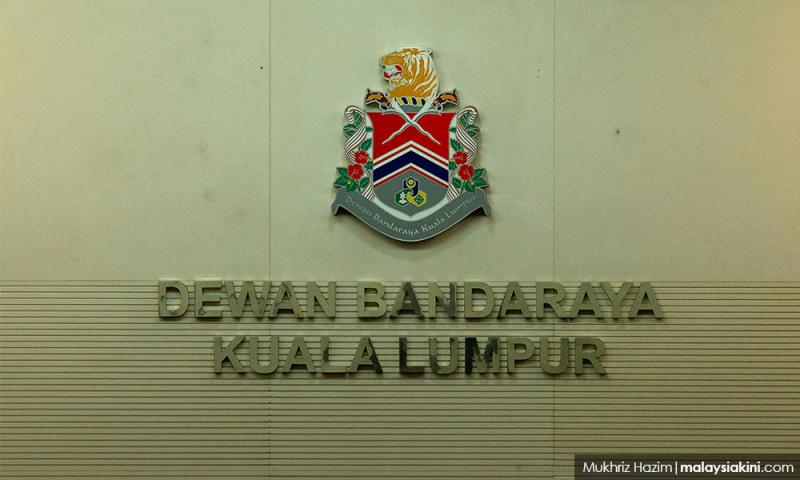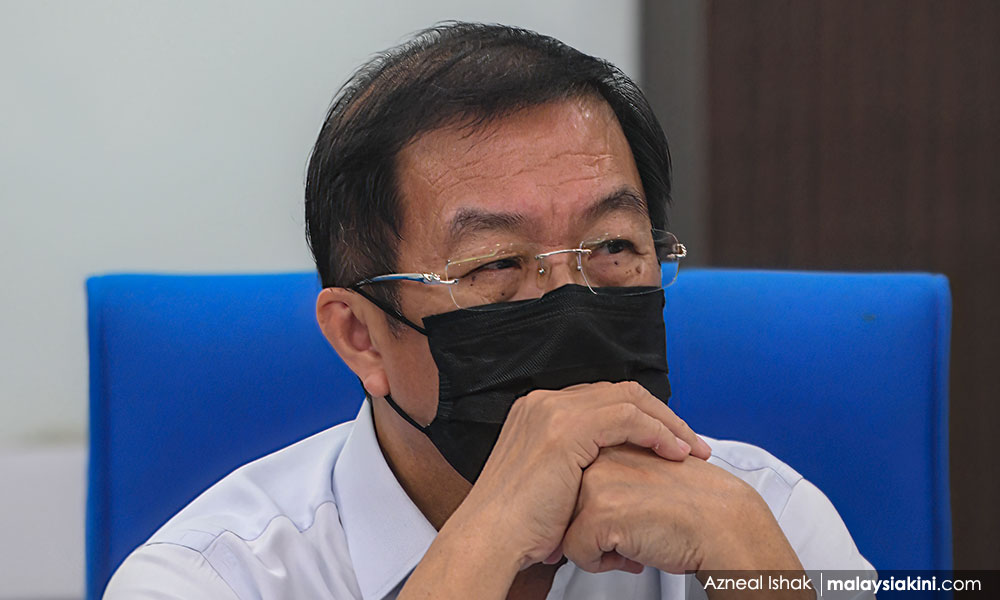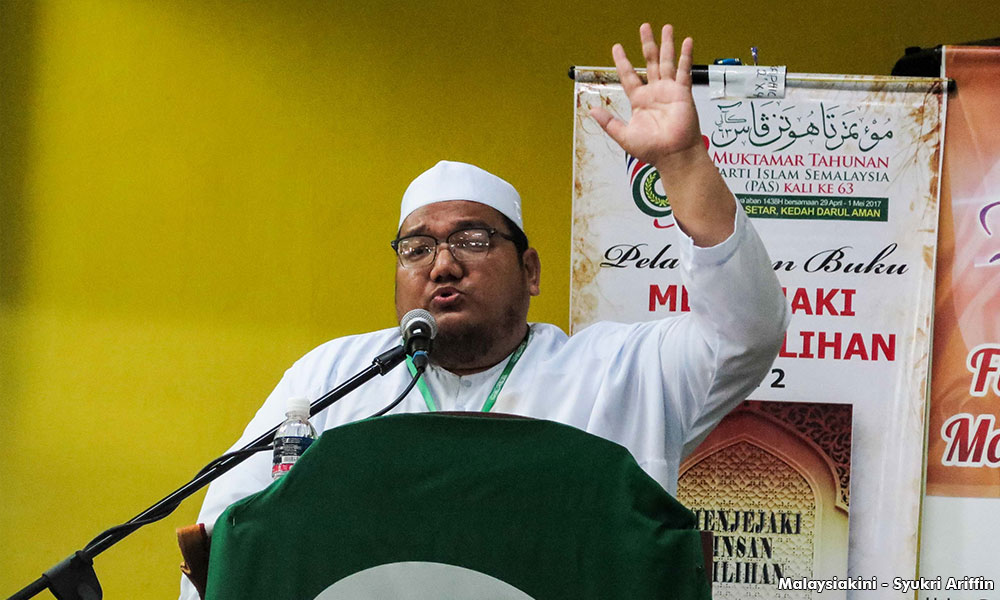
Mohamed Hanipa Maidin
COMMENT | When it comes to the issue of reinstating the local council election in the nation’s capital, our politics are sandwiched between two consistencies.
DAP - especially Tan Kok Wai - has been consistent in calling for the government to reinstate the local government polls in the capital city.
Umno is equally consistent but rather in a negative way. The party has been consistent in rejecting any idea of calling back the local government election in the capital city.
PAS? For the time being, let us assume the party also rejects any attempt to reinstate the local council election in the capital city.
Yes, in the past, the PAS president used to reject this too.
********
PETALING JAYA, Dec 25 — A dialogue session with PAS president Datuk Seri Abdul Hadi Awang in London yesterday turned into a heated verbal exchange between participants after he invoked the spectre of the bloody May 13 racial riots in warning against local elections.
According to a report by Malaysiakini, Abdul Hadi was earlier responding to a question by a participant on why the former was against the implementation of local council elections.
“When an election is contested only by residents [and does not include those who serve the residents], it is certain that big cities such as Kuala Lumpur, Ipoh, Penang, Seremban, and Johor Baru would be dominated by DAP Chinese.
********
Is having local government election really a bad idea? Are Malaysians - particularly in the nation’s capital - are not really fond of having local government election?

Tan Kok Wai
In 2010, Merdeka Center conducted a study and based on the survey, it was found out that 71 percent of the respondents duly agreed for the local government election was to be reinstated.
Based on such an evidence-based finding, Merdeka Center made the following remarks, " The survey has simultaneously proved that even though the local council election has been abolished, it is still relevant to be reinstated according to public choice."
Am I making this up? Anyway, one may read such a finding in an academic writing titled "Reviving the Local Government Election in Malaysia?" published in the Global Journal of Business and Social Science Review.
An Umno leader told the media that his party would never allow this to happen. Why? No reason was given, at least not to the media.
The Federal Territories PAS chief Azhar Yahya vehemently rejected the proposal made by Tan.
He claimed that by having such an election, the local government would be disproportionately dominated by the Chinese community, saying there is a racial imbalance in the Federal Territories currently.
In 2010, Merdeka Center conducted a study and based on the survey, it was found out that 71 percent of the respondents duly agreed for the local government election was to be reinstated.
Based on such an evidence-based finding, Merdeka Center made the following remarks, " The survey has simultaneously proved that even though the local council election has been abolished, it is still relevant to be reinstated according to public choice."
Am I making this up? Anyway, one may read such a finding in an academic writing titled "Reviving the Local Government Election in Malaysia?" published in the Global Journal of Business and Social Science Review.
An Umno leader told the media that his party would never allow this to happen. Why? No reason was given, at least not to the media.
The Federal Territories PAS chief Azhar Yahya vehemently rejected the proposal made by Tan.
He claimed that by having such an election, the local government would be disproportionately dominated by the Chinese community, saying there is a racial imbalance in the Federal Territories currently.

Federal Territories PAS chief Azhar Yahya
If that is the case, then how about Kelantan, Terengganu, Perlis and Kedah? Is there a Chinese imbalance too?
With due respect, PAS should be very slow in playing the race card here. Their candidates used to be supported by Chinese voters in the past. It shows that non-Malays have no qualms in electing Malay candidates.
Anyway, how about London? According to the 2021 census, the largest religious groupings are Christians (40.66 percent), followed by those of no religion (27.05 percent), Muslims (14.99 percent), no response (seven percent), Hindus (5.15 percent), Jews (1.65 percent), Sikhs (1.64 percent), Buddhists (1.0 percent) and others (0.9 percent).
Yet, London people chose Sadiq Khan, a Muslim, as their mayor. He is reportedly a regular mosque-goer. Sadiq is also reported to have regularly attended Al-Muzzammil Mosque in Tooting.
Sadiq was elected on May 6, 2021, via a London mayoral election.
In essence, local government election is premised on the need to have leaders who are directly chosen by the people. At present, the leaders in our local governments are appointed, not elected.
Some of them have been frequently appointed although they are either underperformers or not even qualified to hold public office in the first place.
‘Nepotism and cronysim’
Unfortunately, under the present system, there is no transparency, let alone accountability.
Some of them don’t even have integrity. Good governance is extremely minimal or at almost zero. And why should they care?
In the absence of local government election, all these “deadwoods” will never be subject to periodic scrutiny via an election.
Their positions seem to be guaranteed so long as they know to whom they should be beholden. Nepotism and cronyism at work!
In any case, everyone has the democratic right to accept or reject any proposal of reinstating the local government elections but let such acceptance or rejection be evidence-based, not sentiment-based.
Mohamed Hanipa Maidin is a former MP for Sepang.
If that is the case, then how about Kelantan, Terengganu, Perlis and Kedah? Is there a Chinese imbalance too?
With due respect, PAS should be very slow in playing the race card here. Their candidates used to be supported by Chinese voters in the past. It shows that non-Malays have no qualms in electing Malay candidates.
Anyway, how about London? According to the 2021 census, the largest religious groupings are Christians (40.66 percent), followed by those of no religion (27.05 percent), Muslims (14.99 percent), no response (seven percent), Hindus (5.15 percent), Jews (1.65 percent), Sikhs (1.64 percent), Buddhists (1.0 percent) and others (0.9 percent).
Yet, London people chose Sadiq Khan, a Muslim, as their mayor. He is reportedly a regular mosque-goer. Sadiq is also reported to have regularly attended Al-Muzzammil Mosque in Tooting.
Sadiq was elected on May 6, 2021, via a London mayoral election.
In essence, local government election is premised on the need to have leaders who are directly chosen by the people. At present, the leaders in our local governments are appointed, not elected.
Some of them have been frequently appointed although they are either underperformers or not even qualified to hold public office in the first place.
‘Nepotism and cronysim’
Unfortunately, under the present system, there is no transparency, let alone accountability.
Some of them don’t even have integrity. Good governance is extremely minimal or at almost zero. And why should they care?
In the absence of local government election, all these “deadwoods” will never be subject to periodic scrutiny via an election.
Their positions seem to be guaranteed so long as they know to whom they should be beholden. Nepotism and cronyism at work!
In any case, everyone has the democratic right to accept or reject any proposal of reinstating the local government elections but let such acceptance or rejection be evidence-based, not sentiment-based.
Mohamed Hanipa Maidin is a former MP for Sepang.
No comments:
Post a Comment